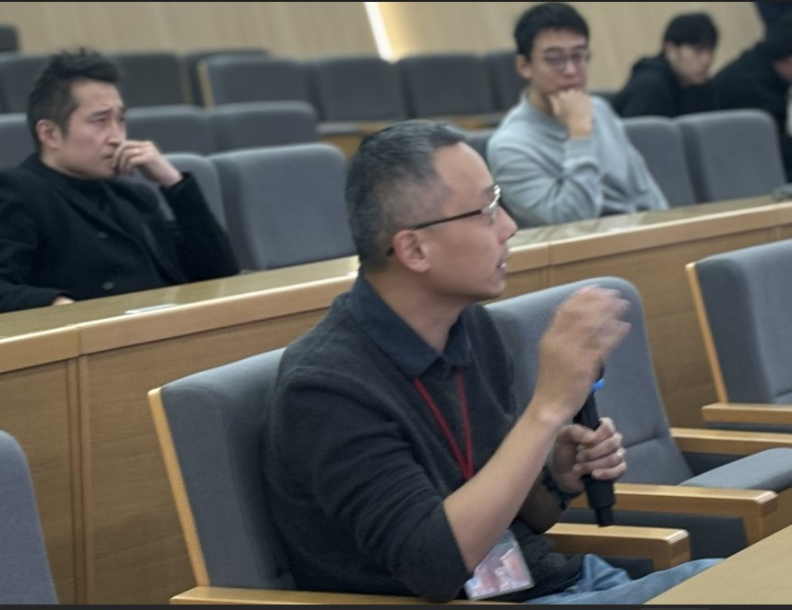On the afternoon of November 21, Professor Zheng-Tian Lu from the University of Science and Technology of China visited the Tsung-Dao Lee Institute (TDLI) to present the 19th T. D. Lee Colloquium. His lecture, titled "Identifying Old Ice and Water with Single-Atom Counting," captivated an audience of over 30 students, postdocs, and faculty members attending in person. The event, hosted by TDLI Deputy Director Professor Hong Ding, also drew more than 3,000 online participants.

In the presentation, Zheng-Tian Lu mainly introduced the methods and applications of radioactive gas isotope dating using single-atom counting techniques, especially for Antarctic ice cores. By accurately measuring the amount of 81Kr in the ice, this technique is able to trace the age of groundwater, which in turn reveals paleoclimatic information and Earth history. The advantages of the technique are discussed in detail, including its high sensitivity, selectivity and rapidity, as well as its applications in different scientific fields, such as groundwater source tracing, geological dating and climate change studies. In addition, Zheng-Tian Lu introduced international collaborative projects and future research directions, emphasizing that through the development and application of this technology, scientists will be able to gain a more accurate understanding of past environmental changes and provide important data to support future environmental protection and resource management.



Zheng-Tian Lu's presentation aroused great interest among the audience, they asked questions enthusiastically, which were answered in detail by him.

At the end of the colloquium, Hong Ding, on behalf of the Institute, presented Zheng-Tian Lu with a commemorative certificate for the Lecture and a customized cartoon portrait of Zheng-Tian Lu himself.
Biography
Zheng-Tian Lu is University Distinguished Professor, Yan Jici Professor of Physics and the Dean of the School of the Gifted Young, the University of Science and Technology of China (USTC). He received a B.Sc. from USTC in 1987 and then went to the United States on a CUSPEA PROGRAM Scholarship and received his Ph.D. from UC Berkeley in 1994. Prior to rejoining USTC in 2015 under the Chinese National Recruitment Program for Global Experts, he was a Senior Scientist at Argonne National Laboratory and a Professor (part-time) at The University of Chicago. Throughout his career, Lu has been developing techniques of laser manipulation and laser spectroscopy of atoms, and applying these techniques to ultrasensitive trace analysis, studying nuclear structure, and testing fundamental symmetries. He received a U.S. Presidential Early Career Award in 2000, was elected a Fellow of the American Physical Society in 2006, and received the Society’s Francis M. Pipkin Award in 2009. He served as a member of the U.S. Nuclear Science Advisory Committee in 2011-2013, and as Chair of the Topical Group of Precision Measurement and Fundamental Constants of the American Physical Society in 2015-2016. He serves on the advisory boards of the Max Planck Institute for Nuclear Physics, the School of Physics and Astronomy of Shanghai Jiao Tong University, and Hefei National Research Center for Physical Sciences at the Microscale.

